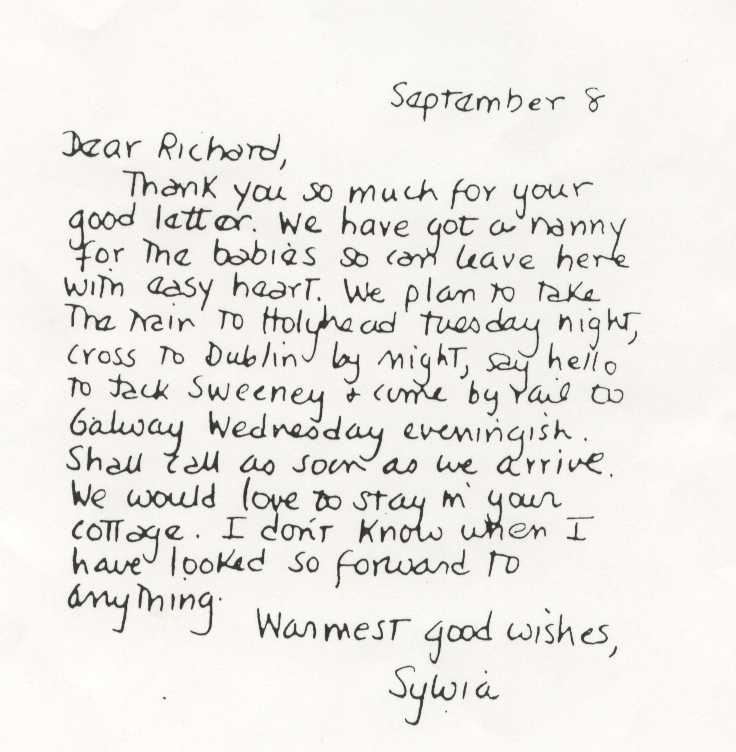I haven't read through this yet, but it is a handwriting analysis of Sylvia Plath. It could shed some light.
The following is cut and pasted from the same site:
The handwriting analysis confirms the qualities and limits of this personality which had to bear the tensions pointed out in her biography. From an intellective viewpoint, her intelligence appears inclined to precision and to an original use of language, due to the combination of the signs Clear, Accurate, Narrowness between letters, Methodically Uneven, Twisted, Disconnected. Inclination to precision in defining the external and inner world (Clear, Accurate) becomes a need for precision because of her original creativity (Methodically Uneven), based on an abrupt control (Twisted, Disconnected) and on the demand of a careful and strict choice of terms (Narrowness between the Letters). Narrowness between the Letters (lack of generosity), at a linguistic level, reinforces her demand of a technical precision in the use of language. The same combination, for instance, is required by experimental sciences because
it indicates the dominance of the Jungian function of Sensation: the subject is careful about all the smallest manifestations of the external perceptual world (this function is the opposite of Intuition, which, on the contrary ranges above perceptual data).
Sylvia Plath, therefore, is endowed with an exceptional intellective disposition to originality and precision in the use of language, consequently an attitude to poetry (in its components of metrics, consonance-dissonance in terms, full mastering and differentiation in lexicon, etc.).
Problems arises from the feeling, in the rigidity of her personality which exaggerates in imposing itself and in the unilaterality of views. Her handwriting is straight (Upright), suggesting a full focusing of her personality on itself, but all the qualities which make her precise and original in language, do not work at a human level, first of all about herself and then about relationships with others.
Her marked self-control, demand for precision, originality, narrowness of judgement, care for exteriority, inner inquietude because of an excessive self-control, permalosity, represent, both singularly and in the whole ticking time bombs in her personality, which can explode at the slightest stimulus.
She is a proud individual, which takes herself too seriously (Accurate, Narrow between the Letters make her touchy because of her restricted views).
Her sentiment is exigent, as very original but hardly showing. Moreover, it tends to analyze everything, both what she gives and receives (Disconnected) with a strong strictness, increased also by the presence of the sign Twisted (control).
The sign Spacing between words above average does not allow her to reason a little more about her situation to come to a kind of self-control due to ponderation. She always explodes much sooner.
Her handwriting confirms her great writing talent, but her difficulty in indulging a little more herself as well.


